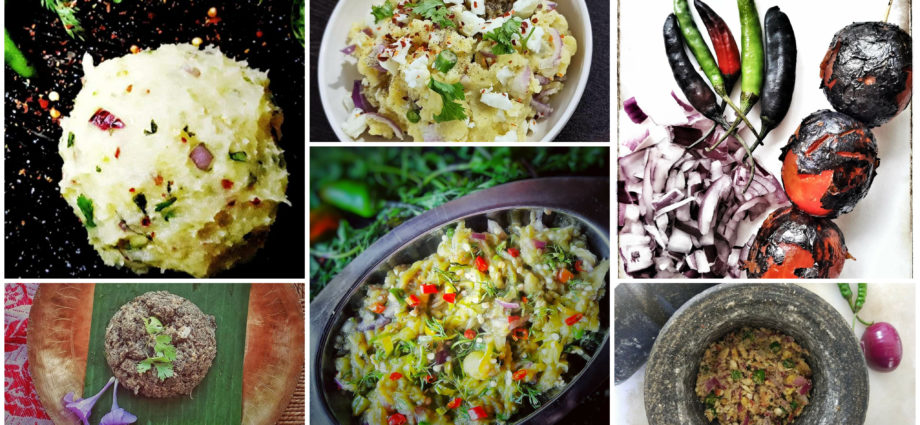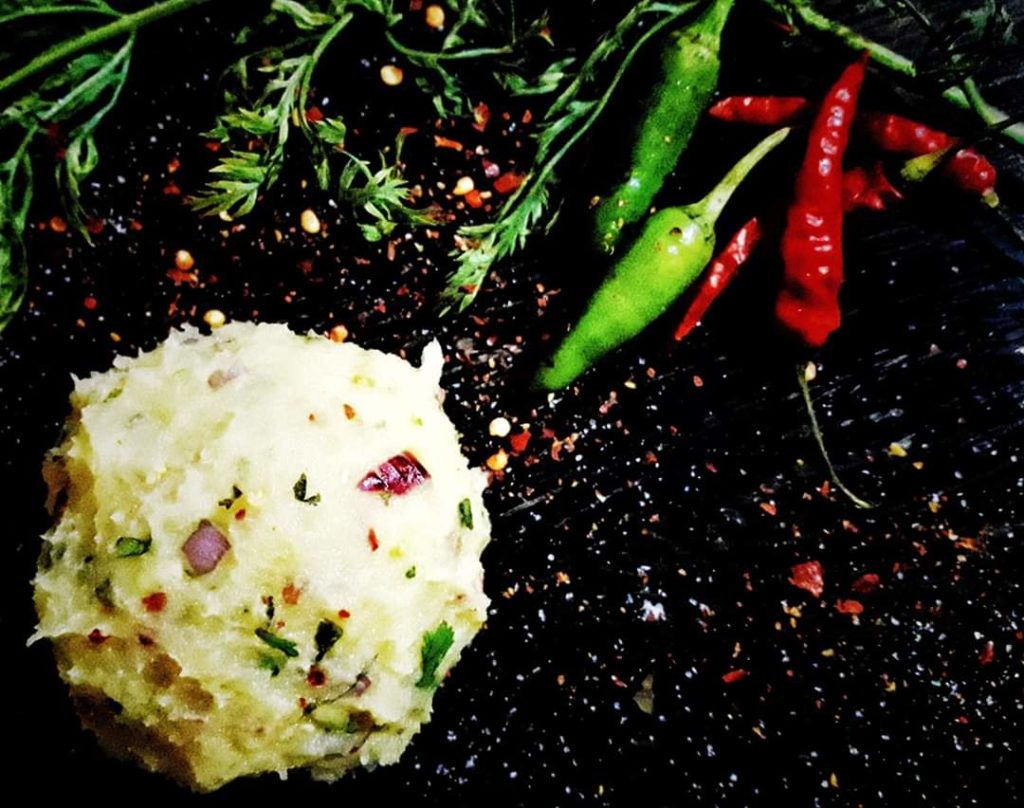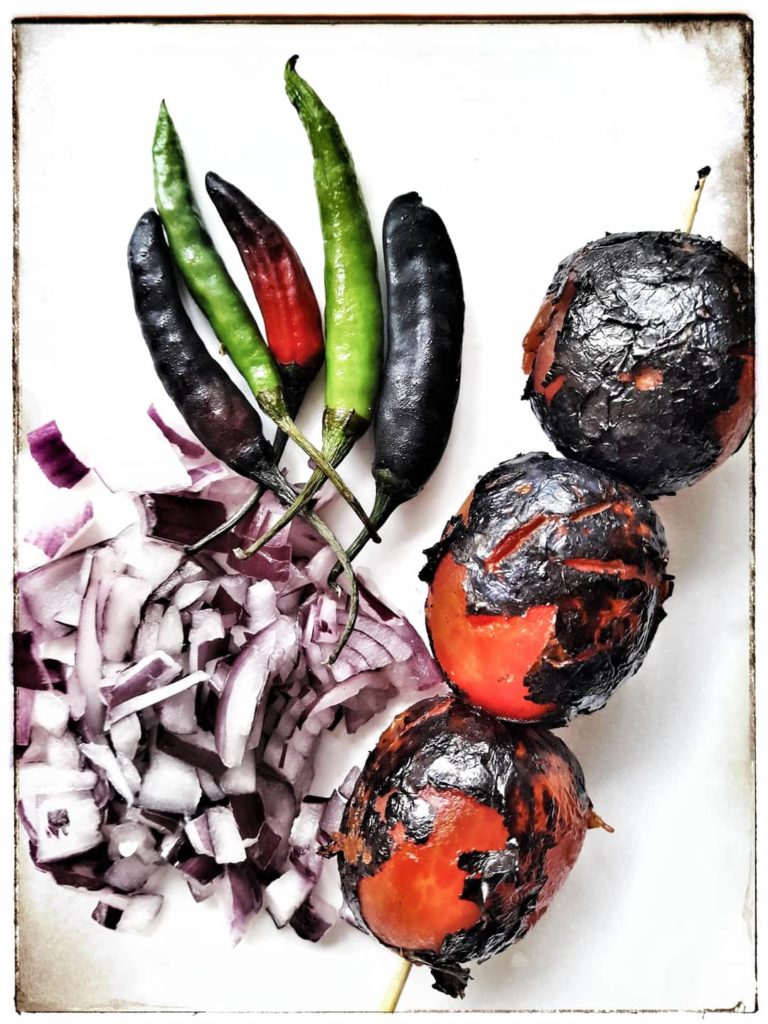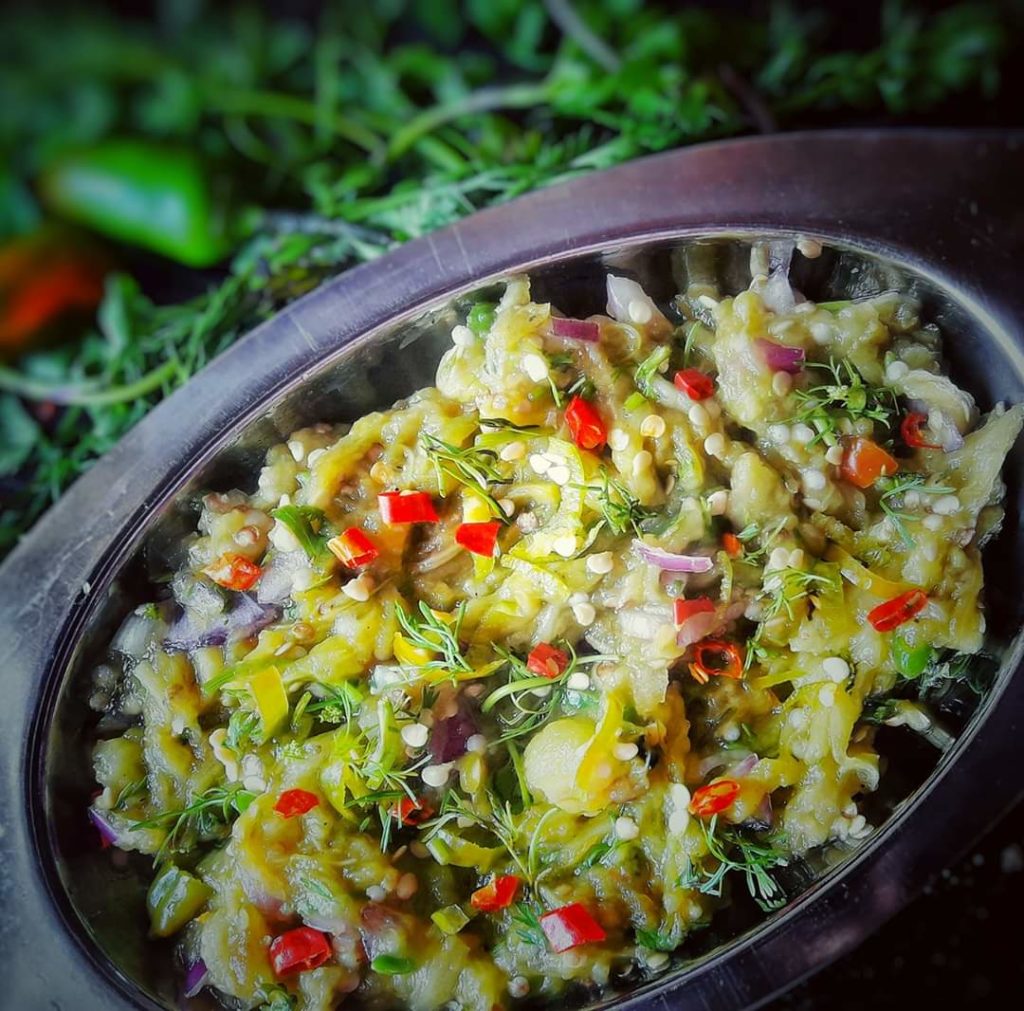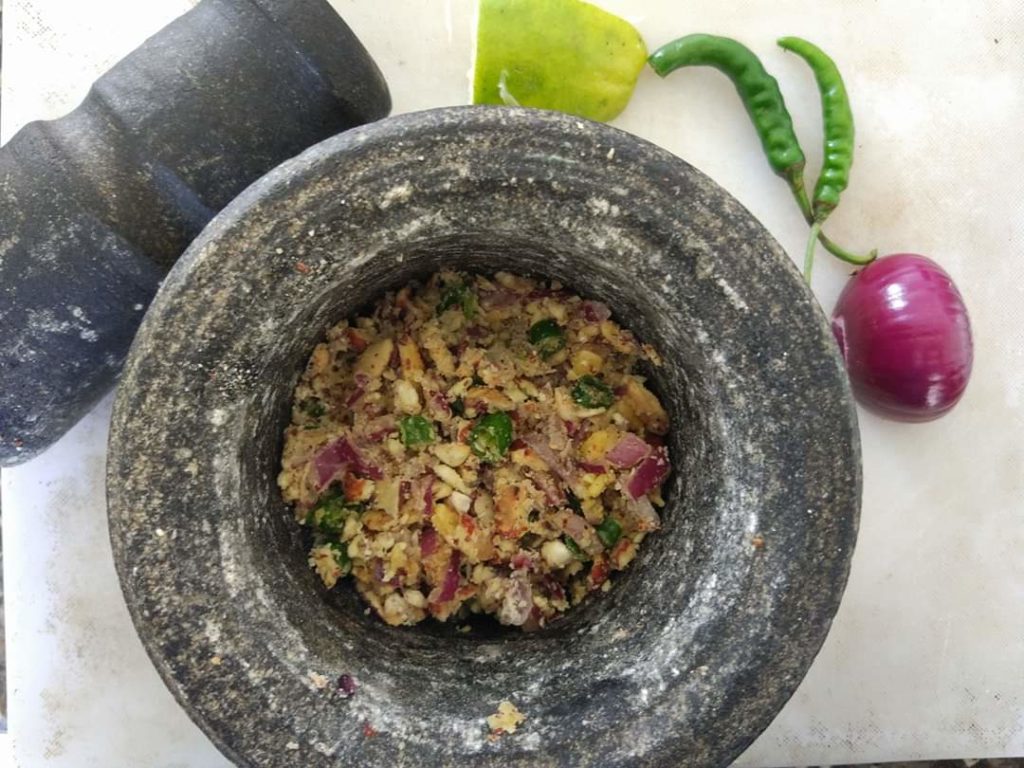Pitika or mashes are an integral part of Assamese cuisine. Whether you are short of time, resources or feeling lazy to cook, pitikas can always come handy, especially in a trying time like this. With minimum effort, Assamese mashes can brighten up your simple plate of dal-chawal or fermented rice. Here are some of the mouth-watering pitikas from the state.
Aloo Pitika
In Assam, Aloo Pitika is more like an emotion than a condiment. It’s one of those things that gives out a sense of ‘Assameseness’. And the recipe is easy as a pie. All you need to do is mash a boiled or smoked potato with salt and a bit of mustard oil. You can add chopped onions, chillies, coriander or ginger as per your taste preference. (We shall refer to this combination as pitika mixture in the article for convenience).The best part of Aloo Pitika is that you can mix and match it with other ingredients to make a totally different mash, each with a unique taste.
Pura Bilahi Pitika
The heart of this recipe is roasting the tomato, which is locally called bilahi. You will not get the exact flavor if you blanch the tomatoes. So, just grab a tomato and make some slits on it with a knife. You can also use a fork to poke it. Then, roast it on open flame over a gas stove. Once, it’s done, put it in some cold water. Peel the skin and remove the seeds. Mash it with some salt & mustard oil. Add the pitika mixture if you like. There you have your tangy Bilahi Pitika. If you add a boiled potato to it, you can serve it as Aloo Bilahi Pitika.
Bengena Pitika
Bengena means brinjal in Assamese. And this is another mash that is widely relished in the state, specially in the winters. The process of its preparation is exactly the same as the previous recipe. Just roast it, peel the skin and mash it with the classic ingredients. Just like the tomato version, you can add boiled potato and transform it into Aloo Bengena Pitika.
Goroi Maasor Pitika
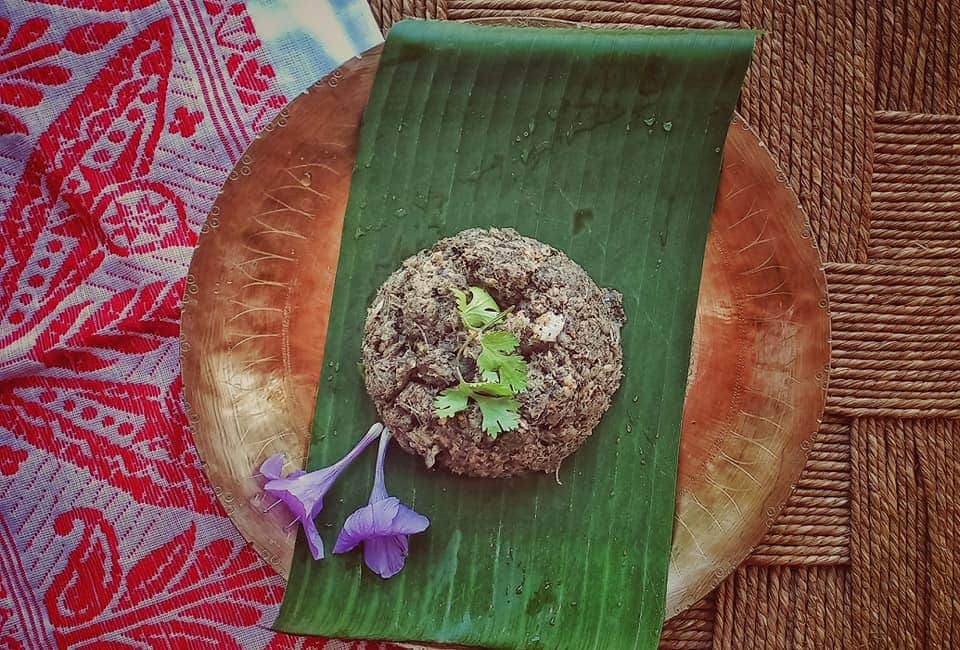
If you were not expecting a fish in the list of Pitikas, then let us tell you that Assamese cuisine is way more interesting than you can imagine. Goroi or Snakehead is a common tiny fresh water fish. For this mash, you need to clean the fishes properly. Once it’s done, put them in skewers and roast on open flame. Keep the flame low as we don’t want charred fishes. Just like the other pitikas, mash the roasted fishes with salt and mustard oil. Then add the pitika mixture as per your taste requirements. This mash goes very well with Poita Bhaat.
Note : Do not forget to debone the fishes properly!!
Kothal Gutir Pitika
Jackfruit or Kothal is a very versatile fruit. You can relish it at any stage of its growth. When it’s raw, it can be cooked as a delicious curry. When it’s ripe, you can eat it as a fruit. And wait.. we are not done yet. You can do a lot more with its seeds. In Assam, jackfruit seeds are sold as any other item in the market during the season of its availability.
The most common recipe with the seeds is the mashed delicacy. This mash requires comparatively more time and effort than the other mashes mentioned here. But, the taste makes it worth the effort. For this mash, first you need to sun dry the seeds. Once, the seeds have dried, you will have to peel the skins. The next step would be to boil the seeds with some salt in a pressure cooker. It will need quite a few whistles. Drain the seeds and get ready for some muscle work as the seeds do not soften completely. Add salt and mustard oil along with the Pitika mixture and Voila!
Koni Aloo Pitika
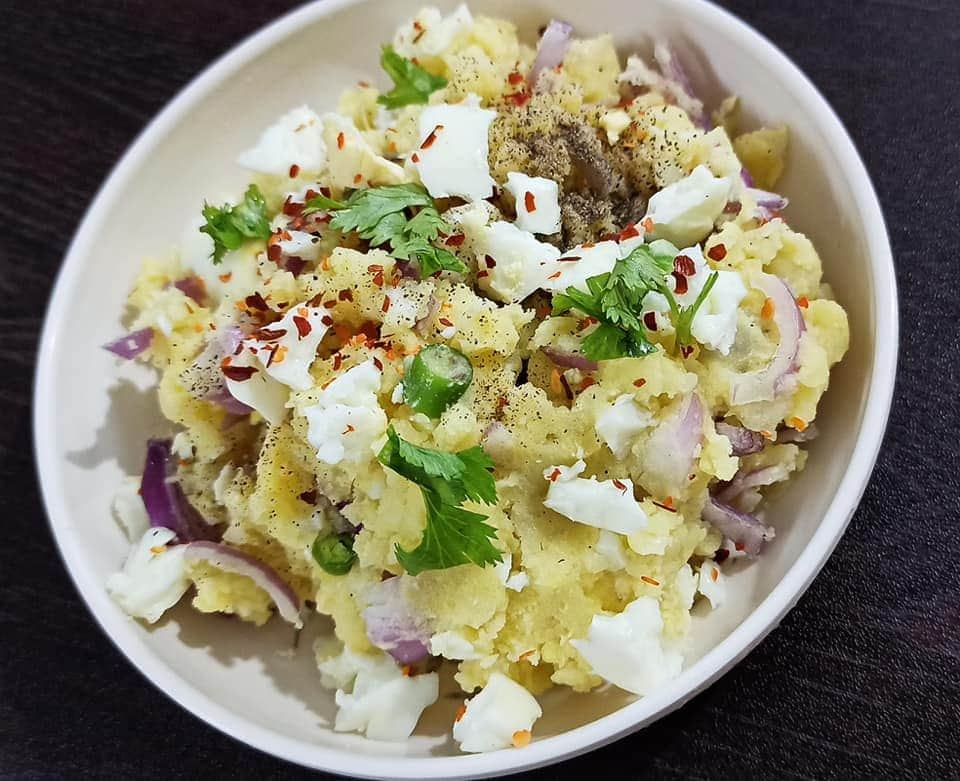
Assemble egg-lovers! As we have something for you as well. So, this mash is simply the aloo pitika mashed with a boiled egg. It is preferable to not use a half-boiled egg as the under-cooked yolk will mess with the consistency and taste of the delicacy.
You can mail your the recipes of your favorite Northeastern Cuisine to discovereastin@gmail.com and get them featured in Discover East.
